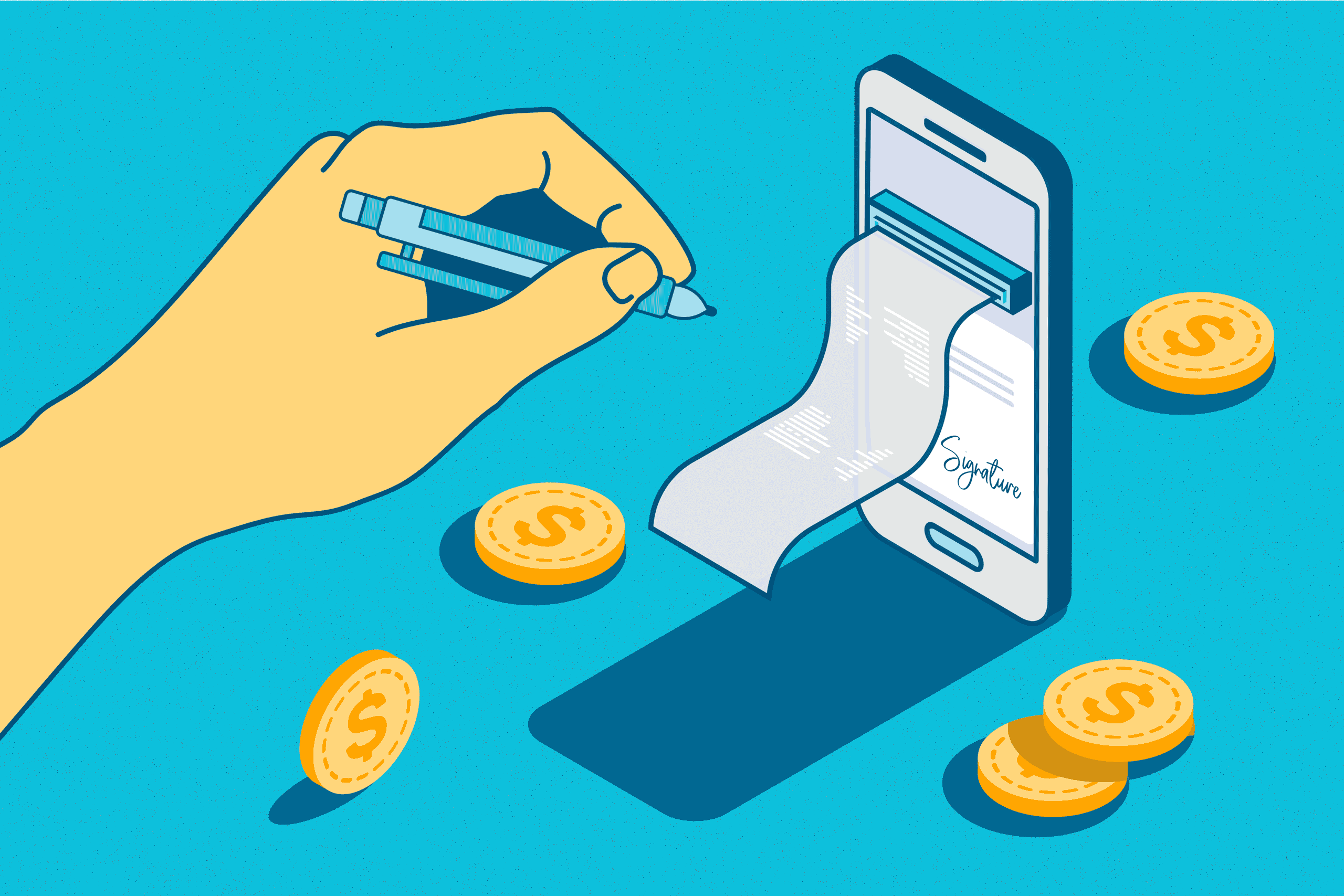Smart contracts are essentially self-executing computer programs designed on top of a blockchain network that codify the terms and conditions of an agreement between parties, what a traditional contract would outline on pieces of paper. In a smart contract, it is possible to store and verify rules that are self-executable.
Though it’s not been widely adopted, the global smart contract market, led by IBM, AWS, and Oracle, is growing at a rapid speed and is projected to surpass 8.9 billion USD by 2030.
This article will inform the readers about the history of smart contracts, how smart contracts work and why smart contracts are important.
What Is a Smart Contract?
Smart contracts refer to self-executing user-to-user transaction protocols developed within a blockchain with the objective to reduce or eliminate the need for an intermediary to facilitate the conversation between parties while further expediting trust and transparency. The smart contract is written in a virtual language and has the power to execute and enforce itself, autonomously and automatically, based on a series of programmed parameters. Deploying a smart contract is technically a transaction, so you need to pay gas in the same way you need to pay gas for a simple ETH transfer.
Much like traditional contracts, they encompass legally binding terms and conditions and formalize relationships by providing a constitutional basis. Unlike traditional contracts, terms are embedded into a computer code and are executed independently just as the preset conditions are met. They follow simple “if/then…” statements to allow automatic confirmation of fulfillment and execution of outcomes of a contract.
Smart contracts sit at the core of blockchain technology. While its uses in the crypto sphere, such as regulating decentralized autonomous organizations, are enormously valuable, its use stretches beyond overseeing crypto-based transactions. Smart contract solutions may bring a robust twist into key industries like legal, finance, or agriculture, may improve governmental legislation on areas like housing or benefits, and significantly improve supply-chain technologies.
What is a Smart Contract in Simple Terms?
A smart contract is a type of digital agreement that runs automatically when certain conditions are met. Think of it as a “set-it-and-forget-it” deal written in code.
For example, imagine you’re buying concert tickets online. With a smart contract, once you send the payment, the code would automatically send you the tickets without needing a third-party middleman. Everything happens securely and transparently on the blockchain, so both sides know the terms will be followed exactly.
Below, we will delve into the history and developments of smart contracts, their processes, benefits, challenges, and real-life applications.
How Exactly Do Smart Contracts Work?
Smart contracts work by using code on a blockchain to automatically execute an agreement when specific conditions are met. Here’s a simple breakdown of how they work:
- Set terms in code: First, the details of the contract are written in code—think of rules like, “If A happens, then do B.” This code is added to the blockchain, which is a secure, digital ledger that records everything publicly.
- Trigger conditions: Once the contract is on the blockchain, it waits for the specified conditions to be met. For example, if it’s a smart contract for selling a digital file, the contract might state, “When the buyer sends payment, release the file.”
- Automatic execution: As soon as the conditions are met (in this case, the buyer sending the payment), the contract executes the agreed action. The blockchain records the transaction, ensuring that both parties can see it’s been completed as intended.
- Immutable and transparent: Once executed, the terms and outcome of the contract are locked and can’t be changed, and since everything is recorded on the blockchain, it’s transparent and traceable for everyone involved.
This automatic and tamper-proof setup makes smart contracts useful for things like payments, lending, ownership transfers, and many other scenarios where trust and transparency are essential.
Characteristics of Smart Contracts
Despite what the name might invoke, smart contracts are not ‘smart’: they are not intelligent tools and they do not go beyond automatically executing pre-programmed steps. At its core, a smart contract is designed to realize agreements such as the following: if Party A pays the price in full, then Party B will deliver the goods.
When Party A meets the requirements (pays the price in full), a smart contract verifies the fulfilment and carries out the outcome (delivers the goods). Should Party A fail to meet the terms, the goods will be redirected to Party B.
Two or more participants, individuals or organizations, may enter a smart contract, and terms of which may be elaborated as much as needed to cover the complexity of an agreement.
A smart contract is developed on a blockchain, for that reason, smart contracts are immutable, distributed, and autonomous.
Immutability is one of blockchain technology’s main defining characteristics, and it allows ledgers to be unaltered and stay permanent. A tightly knitted blockchain database does not allow retrospective tempering by tagging each transaction with a unique digital signature. Smart contracts follow this characteristic: once deployed, the terms and conditions outlined in a contract can not be manipulated or fixed.
Smart contract terms are stored on a distributed database. This means that all participants hold equal control over the agreement, and outcomes are validated by each stakeholder included in the network. Its main implication is that it prevents any participant from forcing an outcome from an agreement, as other parties may identify the attempt.
Smart contracts constitute self-enforcing entities that are executed by digital nodes without the need for human interference. As said before, all obligations and outcomes are laid out by “if/then…” clauses. As the parties meet the requirements, it triggers the automatic enforcement and the contract carries out the respective outcome.
What Are the Benefits of Smart Contracts?
Smart contracts come with a number of benefits for all parties involved, most notably removing the overhead costs and minimizing the human error and delays that are typically associated with traditional contracts. Let’s look at how smart contracts are already benefiting certain industries
Speed and Efficiency
Once conditions are met, smart contracts execute the outcomes immediately. Complete digitalization and automation eliminate the need to process paperwork and document filing, along with potential errors that may occur during manual entries. All this results in a significant cut in time spent reconciling contracts.
As self-executing processes, smart contracts reduce or completely waive the need for intermediaries such as solicitors or brokers to oversee the contracts between parties. Subsequently, a smart contract eliminates the intermediary fees and delays that are usually associated with the involvement of third parties.
Transparency
The distributed consensus model smart contracts embrace provides unprecedented levels of transparency. Instead of a centralized authority overseeing the obligations and eventualities, all records are shared across the network and therefore are impossible to be tampered with for personal gain.
Security & Confidentiality
Records on a blockchain network are encrypted and tethered to each other through the hash. Every block has a hash which can also be compared to a fingerprint. Hash identifies a block and all of its content and is always unique, just like a fingerprint. Once a block is created and added to the chain, its hash is calculated.
Every block not only has its own hash but the hash of the previously linked block as well. For example, the first block of the Bitcoin blockchain has a hash of 4ft678. Now the second block in the chain has not only its own hash – 75e93p but also the hash of the previous block which is 4ft678. This is how different blocks are interconnected with each other.
Changing or tampering with any record or data in the block will result in the hash of the block being changed. Suppose someone changes the data in the second block. Now in this kind of situation, the hash will no longer be 75e93p but it would become something else, let’s say 55c36t. However, the third block would still be reflecting the hash of the previous block as 75e93.
So, if hackers want to corrupt the blockchain network, they would have to change the hash of every single block in the chain which is practically impossible. This implies that a blockchain network is extremely difficult to hack — any attempt to manipulate a block of record results in the breakdown of a whole chain, and thus, very easy to spot.
What Are the Challenges in Using Smart Contracts?
Despite their advantages over traditional contracts, smart contracts also bring about unique challenges caused by their limitations.
Lack of Flexibility
Smart contracts’ immutability almost completely eradicates flexibility as it’s impossible to tweak any terms and conditions laid out in a deployed smart contract. This means that the rules defining the smart contract need to be perfectly defined and agreeable, and the developers of the code must act with utmost caution and care.
Need for a Specialized Skillset
Technical expertise is a key obstacle in the way of the widespread adoption of smart contracts. Parties require an expert with a specific set of skills to codify and read the agreement upon deployment. In such cases, parties may need to rely on the services of lawyers with blockchain specialization to read the smart contract, which brings additional costs.
What Are the Real-Life Applications of Smart Contracts?
What can smart contracts be used for? Smart contacts can be used for any type of transaction, it doesn’t have to be financial. Smart contracts’ main functions such as storing data, confidentiality, and autonomous authentication allow the new technology to be used in a variety of areas and industries, despite its relatively limited adoption for the time being. For example, an insurance company could use smart contracts to automate the release of claim money based on events such as large-scale floods, hurricanes, or droughts.
Supply-chain management makes the most realistic and applicable use of smart contracts. An automated triggering model can significantly streamline the shipping and delivery of the goods, and minimize disruptions while prompt responses to unexpected events.
Home Depot has already started using smart contracts to resolve disputes with vendors. The new technology of a smart contract, allows the firm to have real-time communication and greater visibility into the supply chain, strengthening the relationship with the vendors.
Agriculture is another key industry benefiting from blockchain technology to further develop the practice to be more integrated and simplified. Blockchain improves the traceability of information in the food supply chain, and by extension advances food safety and security.
AgriDigital, for example, is a specialized commodity management solution for the grains industry, providing “paddock to plate” transparency for consumers as well as real-time payments to growers and increased efficiency for brokers.
Smart contracts on blockchain also offer a promising future to other key industries, most prominently legal. Despite not being recognized as a legally binding force on a federal level, several states have already allowed standardizing its use for legal documents: California has been issuing marriage certificates via blockchain technology while in Arizona they constitute enforceable documents.
Hundreds of apps that use smart contracts are already up and running.
Future of Smart Contracts
Smart contracts are gaining traction across multiple verticals as industries scale their technological deployments, most notably in supply chain management, while other crucial sectors such as government and utilities are still struggling to undergo a transformative blockchain development due to the aforesaid challenges.
The staggering growth in IoT-connected devices is also expected to incur greater use of smart contracts, making it crucial to address its challenges and define its possible use areas for seamless adoption.
Final Thoughts
Smart Contracts are blockchain-based digital agreements that can be used to automatically execute the terms of an agreement. These agreements enables decentralized financial systems that do not rely on a thrid party of verify transactions.
Smart contracts will play a huge role in the future of web3, as demand for decentralized systems increases. However, there are still several issues that must be addressed before the technology is adopted on a mainstream scale.
FAQs
How do smart contracts actually work?
Smart contracts are comprised of self-executing lines of code representing the terms of a contract between the parties involved. The terms are verified and executed automatically via a decentralized network such as a blockchain.
Can anyone write a smart contract?
Anyone having the technical know-how can write and deploy a smart contract onto their chosen platform. They would need to know how to code in a smart contract programming language such as Solidity.
Are NFTs smart contracts?
Smart contracts are used for minting NFTs. They allow assigning and reassigning ownership when transferred or sold. Smart contracts constitute the agreement between the sellers and buyers.
What language are smart contracts written in?
Smart contracts can be written in many developer-friendly programming languages. Solidity is the most popular language for writing smart contracts, tailored specifically for smart contracts, and is used across the Ethereum blockchain. Other languages include Vyper, DAML, and Javascript.
What can smart contracts be used for?
Smart contacts can be used for any type of transaction, it doesn’t have to be financial.
Can smart contracts work together?
Smart contracts are intended to be used in isolation. Some smart contracts are built to assist other smart contracts.
What is a smart contract in simple terms?
A smart contract is a self-operating digital agreement that automatically carries out an action when certain rules are met. Imagine it as a “digital vending machine”—you put in the payment, and it immediately gives you the item, no need for a person to confirm it.
These contracts run on a blockchain, so once they’re set up, they can’t be changed, and everyone can see the outcome. They’re used for things like transferring money, selling assets, or verifying services, all without needing a middleman.
Read More About Blockchain









